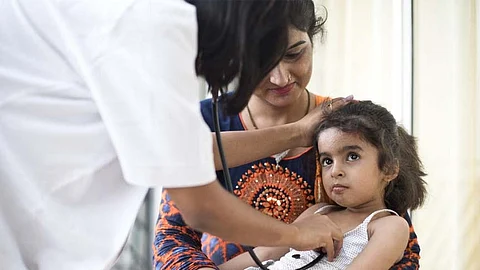

Dr Alka Dwivedi, a graduate from Indian Institute of Technology (IIT) Bombay, has been working on a CAR T-cell therapy that could be made in India.
CAR T-cell therapies are a type of immunotherapy in which a person’s T cells are modified in a laboratory to selectively kill cancer cells. However, these type of therapies - commonly used in the United States - carry a very high price tag and can trigger severe side effects due to antibody fragments derived from mice, which a patient’s immune system might reject.
Dr Dwivedi felt that these issues meant that the cutting-edge treatments - at least in the form in which they were being produced - wouldn’t be a viable option for many people in low- and middle-income countries like India. Dr Dwivedi and her colleagues envisioned designing a different CAR T-cell therapy, one that could be produced in, and meet the needs of, people with cancer in their country.
Over the next several years, Dr Dwivedi (who earned her Ph.D. in 2021) embarked on a collaborative journey that brought her and colleagues Rahul Purwar, Ph.D., of IIT Bombay, and Gaurav Narula, M.D., of Tata Memorial Centre in Mumbai, to the National Institutes of Health (NIH) Clinical Center in Bethesda, Maryland, where they shadowed scientists, including Dr Nirali Shah, M.D.
In October 2023, India’s counterpart to the US Food and Drug Administration (FDA), the Central Drugs Standard Control Organization, made NexCAR19 India’s first approved CAR-T cell therapy.
MORE LIKE THIS…
The approval was based on the results of two small clinical trials conducted in IndiaExit Disclaimer in 64 people with advanced lymphoma or leukemia. According to trial results presented in December 2023 at the American Society of Hematology meeting, 67% of patients (36 out of 53) in the two trials had a notable decrease in the extent of their cancer (objective response), with the cancer disappearing altogether in about half (complete response).
ImmunoACT, a spin-off company of IIT Bombay, funded the trial and will be manufacturing actalycabtagene autoleucel and bringing it to market.
“This is a big achievement for India,” said Dr Dwivedi, who is now continuing her training in NCI’s Centre for Cancer Research. “It’s the team effort that brought us here.”
MORE LIKE THIS…
“This is like a dream come true and an incredible win for the patients in [India],” Dr Purwar, who was Dr Dwivedi’s graduate advisor at IIT Bombay and is founder and CEO of ImmunoACT, said in a statement. “Now our patients in India and [other] countries with limited resources will have access to this lifesaving drug at an affordable cost.”
Dr Dwivedi said that the experience of shadowing NCI scientists was a turning point for her team. When they returned to India, they successfully manufactured several versions of a humanised CAR T-cell therapy. Dr Shah and her NCI colleagues also made numerous trips to India to help the IIT Bombay/Tata team as they moved through the manufacturing process.
*Info: National Cancer Institute